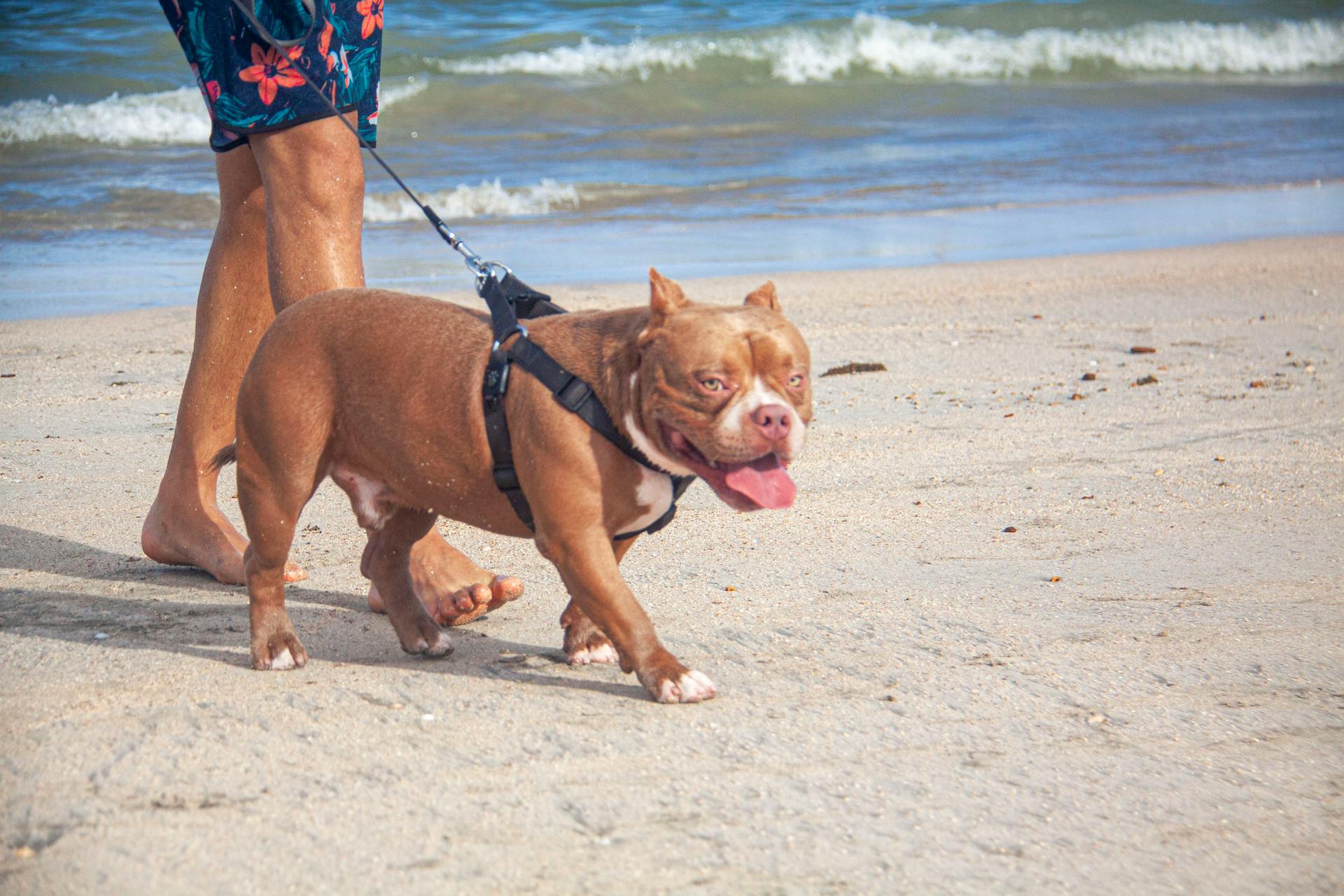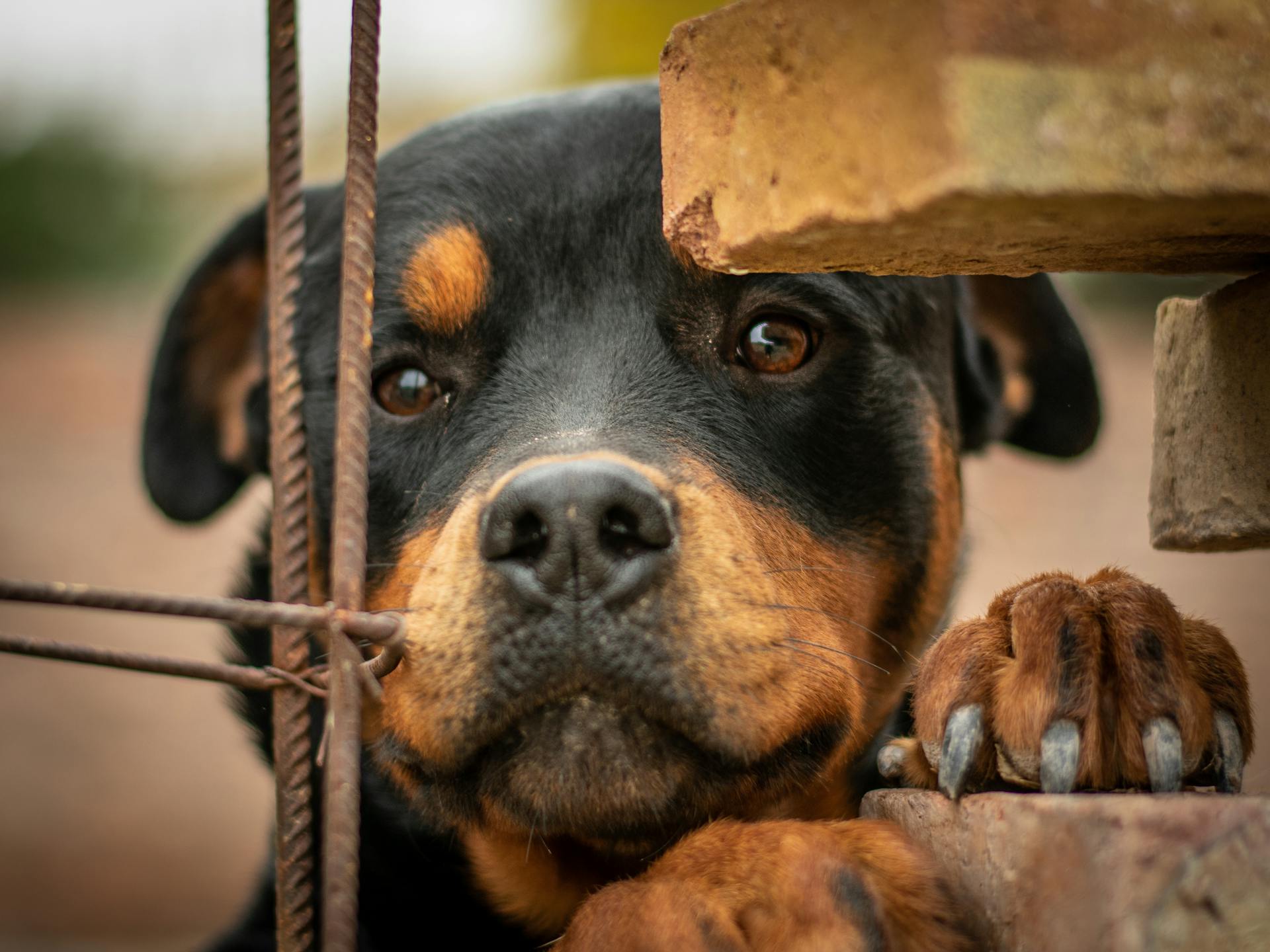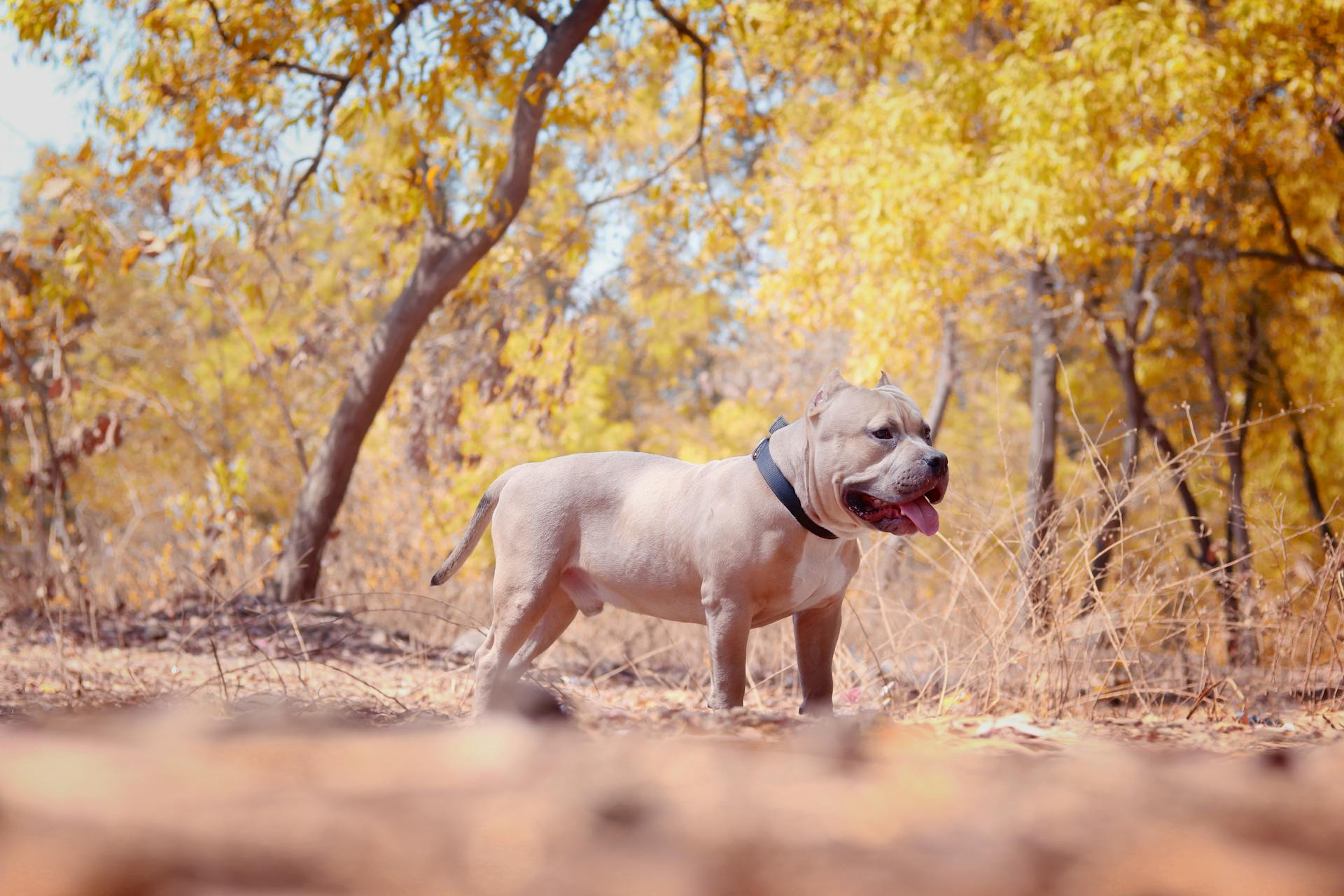
The Blue Nose American Bully Pitbull is a unique breed that has gained popularity in recent years. They are known for their distinctive blue nose, which is caused by a genetic variation that reduces the amount of pigment in the nose.
This breed is a result of cross-breeding between the American Pitbull Terrier and other breeds, such as the American Staffordshire Terrier. They are often referred to as Blue Nose Pitbulls or Blue Nose AmBulls.
One of the most notable characteristics of the Blue Nose American Bully Pitbull is their gentle and affectionate nature. They make great family pets, especially for families with children.
They are also highly intelligent and trainable, which makes them a popular choice for first-time dog owners.
Temperament and Behavior
The blue nose American Bully Pitbull is a loving and loyal breed, making them great for children and families. They form strong bonds with their owners and are known for their big-hearted nature.
They are intelligent dogs that can catch on to things quite quickly, making training a blue nose Pitbull fairly straightforward. However, they do require discipline to curb their strength, energy, and stubbornness.
If you socialize your blue nose American Bully Pitbull when they're young, you should have no problem with them getting along with any pet in your household. But if they don't get enough exercise or socialization, they can become bored and frustrated, leading to destructive behavior.
To avoid this, it's essential to provide your blue nose Pitbull with regular exercise and mental stimulation. Leaving them alone for long periods can also lead to separation anxiety, so try to spend quality time with them.
Despite their intimidating appearance, blue nose Pitbulls are affectionate and loving canines that enjoy a good cuddle. With proper care and attention, they can make wonderful companions for many years to come.
Care and Maintenance
Blue nose American Bully Pitbulls are relatively low-maintenance when it comes to grooming, but they still require regular care to stay healthy.
They don't need frequent bathing, but it's essential to use pH-balanced shampoo to prevent skin issues. Blue nose pitbulls can be prone to skin problems, so it's crucial to keep an eye out for any signs of irritation.
Regular brushing is also necessary to control shedding and remove dead fur and skin. A soft-bristle brush once or twice a week should be enough to keep shedding to a minimum.
To keep your blue nose American Bully Pitbull's nails healthy, trim them regularly, especially if your pup isn't overly active. Walking on sidewalks can wear them down to some degree, but it's better to get your pup used to nail trimming as a puppy.
Here are some similar breeds to the blue nose American Bully Pitbull that require similar maintenance:
Breed Maintenance
Your Bullypit will need regular maintenance to stay happy and healthy. Brushing your dog once or twice a week with a soft bristle brush can help keep shedding to a minimum.
It's also essential to check your dog's ears regularly, ideally once a week, for signs of redness, wax buildup, and ear mites. This will help prevent infections and keep your dog's ears clean.
In addition to ear care, you'll want to brush your dog's teeth at least once or twice a week with toothpaste made especially for dogs. This will help prevent tartar buildup and keep your dog's breath fresh.
Trimming your dog's nails when needed is also crucial to prevent overgrowth and splitting. You can use a nail trimmer specifically designed for dogs to make the process easier.
Here's a quick rundown of the maintenance tasks you'll need to perform regularly:
Remember, regular maintenance is key to keeping your Bullypit happy and healthy. By following these simple tasks, you'll be able to prevent common issues and keep your dog looking and feeling its best.
Pitbull Diet
A Pitbull's diet is crucial for their overall health and well-being. Muscular and athletic breeds like Blue Nose Pitbulls require good amounts of proteins and fats.
You'll want to feed your Pitbull around 1.5 to 2 cups of food each day, which is equivalent to a pound of food. Adjust this amount based on your dog's age and size, as males and puppies need more food than females and older dogs.
To prevent obesity, which is a common issue in Pitbulls, you'll need to monitor their caloric intake closely. Regularly scheduled meals are a great way to do this, allowing you to match your dog's food consumption to their activity levels.
Bullypits aren't overly active, so they don't need as much food as smaller dogs with faster metabolisms. As a larger breed, your Pitbull will need relatively less food than a smaller dog.
Ownership and Compatibility
Blue nose American bully pitbulls are a wonderful breed to live with, but they do come with some specific needs and considerations.
They require regular exercise, with at least 90 minutes of walking per day, to keep them happy and healthy. They're also highly social animals that need to be socialized from an early age to get along with other pets and animals.
If you're a first-time dog owner, it may not be the best idea to adopt a blue nose pitbull right away, as they can be a lot to handle. However, if you're confident and up to the task, they make a fantastic family pet.
Here are some key things to consider when thinking about owning a blue nose American bully pitbull:
Overall, blue nose American bully pitbulls are a wonderful breed that can bring a lot of joy to your household, but they do require some specific care and attention.
Good for New Owners?
If you're a new dog owner, you might be wondering if a Bullypit or Blue Nose Pitbull is a good fit for you. They can be a handful if not properly cared for, but with the right training and socialization, they can make fantastic family pets.
Their high intellect means they're easy to train, but it's essential to remember that they need regular exercise and mental stimulation to prevent boredom and frustration.
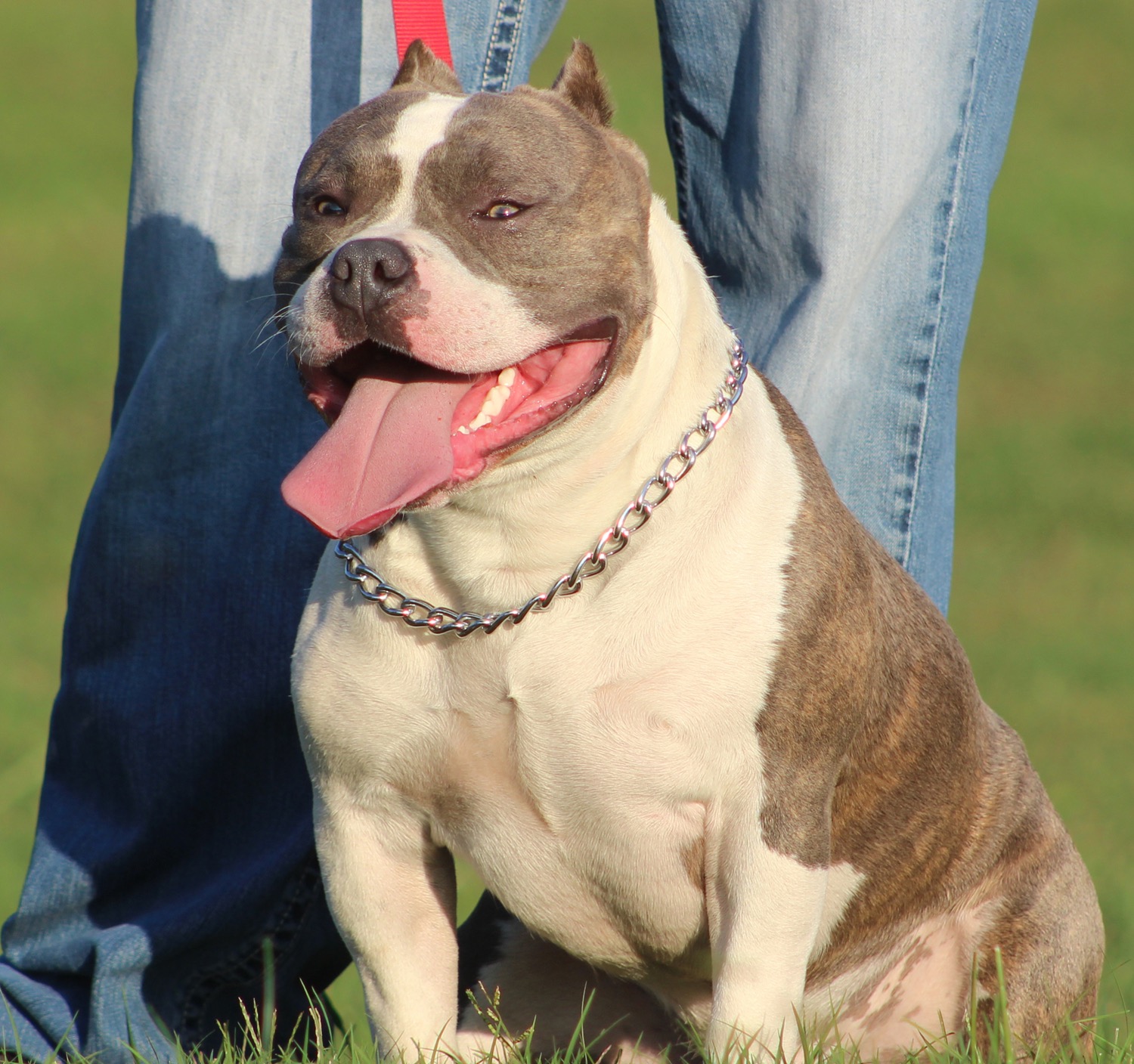
Leaving them alone for long periods can lead to separation anxiety, so it's crucial to provide them with plenty of attention and interaction.
If you're a first-time dog owner, it's essential to consider whether you're up to the task of caring for a strong-willed breed like the Bullypit or Blue Nose Pitbull.
Pet Compatibility
When it comes to pet compatibility, it's essential to consider the needs and temperaments of both your blue nose pitbull and other animals in the household.
Blue nose pitbulls are generally loving and playful, but they can be prone to separation anxiety and boredom if left alone for long periods. This can lead to destructive behavior, so it's crucial to provide them with adequate exercise and mental stimulation.
If you have smaller pets, be aware that blue nose pitbulls may unintentionally hurt them due to their large size. It's essential to exercise caution and ensure your pittie is properly socialized and trained to interact with other animals.
A unique perspective: American Bully Pocket Pitbulls
To ensure your blue nose pitbull gets along with other pets, socialize them from an early age and teach them obedience training and socialization skills. Regular walks and positive reward training can also help your dog become a social butterfly.
Here's a summary of pet compatibility considerations for blue nose pitbulls:
Ultimately, with patience, training, and proper care, your blue nose pitbull can thrive in a household with other pets.
Adopting Pitbulls
Blue nose pitbulls are rare, so you're less likely to find them at a rescue center.
If you do find a blue nose pitbull at a shelter, ask around or do a search online to see if there are any up for adoption.
You can find out as much as possible about their history to be aware of any physical or behavioral issues before introducing them to your pack.
Health and Expenses
Blue nose American bully pitbulls can be prone to certain health issues, including cataracts, demodectic mange, and skinfold dermatitis. Regular check-ups at the vet are essential to catch these problems early.
Hip and elbow dysplasia, luxating patella, and cardiac issues are also common health problems in this breed. These conditions can be expensive and painful to correct, which is why it's crucial to buy from reputable breeders who screen for these issues.
As for expenses, blue nose pitbulls can be pricey, with prices ranging from $1,000 to $3,000. This is because reputable breeders invest in proper breeding practices, which can be costly.
Here are some common health issues to watch out for in blue nose American bully pitbulls:
- Cataracts
- Demodectic mange
- Skinfold dermatitis
- Hip and elbow dysplasia
- Luxating patella
- Cardiac issues
Health and Conditions
As a responsible dog owner, it's essential to be aware of the potential health issues that can affect your Bullypit. Cataracts, demodectic mange, and skinfold dermatitis are just a few of the common health problems that can arise.
Regular check-ups with your veterinarian can help identify these issues early on. Pre-health screenings for the hips and elbows by the Orthopedic Foundation for Animals are also recommended to catch any potential genetic defects.
On a similar theme: Catahoula Leopard Dog Health Issues
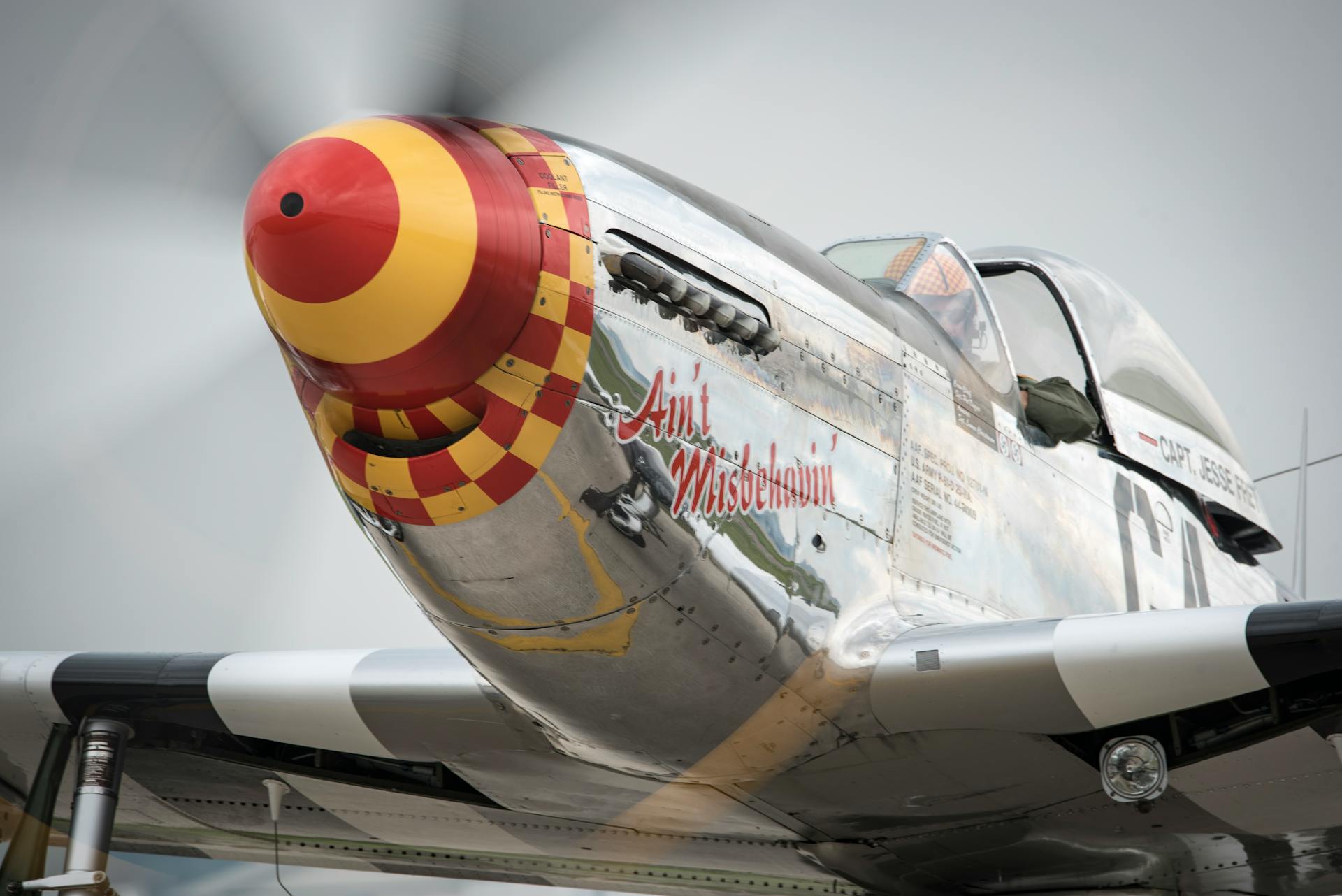
Hip and elbow dysplasia, luxating patella, and cardiac issues can all be costly and painful to correct. That's why it's crucial to buy from reputable breeders who screen for these common issues.
Some of the most common illnesses that can affect pitbulls include hypothyroidism and juvenile cataracts. These conditions can be prevented or managed with regular veterinary care and a healthy lifestyle.
Here are some of the potential health problems that can affect your Bullypit:
- Cataracts
- Demodectic mange
- Skinfold dermatitis
- Hip and elbow dysplasia
- Luxating patella
- Cardiac issues
- Hypothyroidism
- Juvenile cataracts
How Long Do They Live?
Blue nose pitbulls have a moderate life expectancy of around 12 to 15 years. Factors such as diet, exercise, genetics, and physical and mental health play a big role in how your pitbull ages.
A healthy diet is crucial for your pitbull's longevity, and a balanced diet that meets their nutritional needs can help them live up to 15 years. Regular exercise is also essential, but be sure not to overdo it.
Broaden your view: Shih Tzu 100 Years Ago
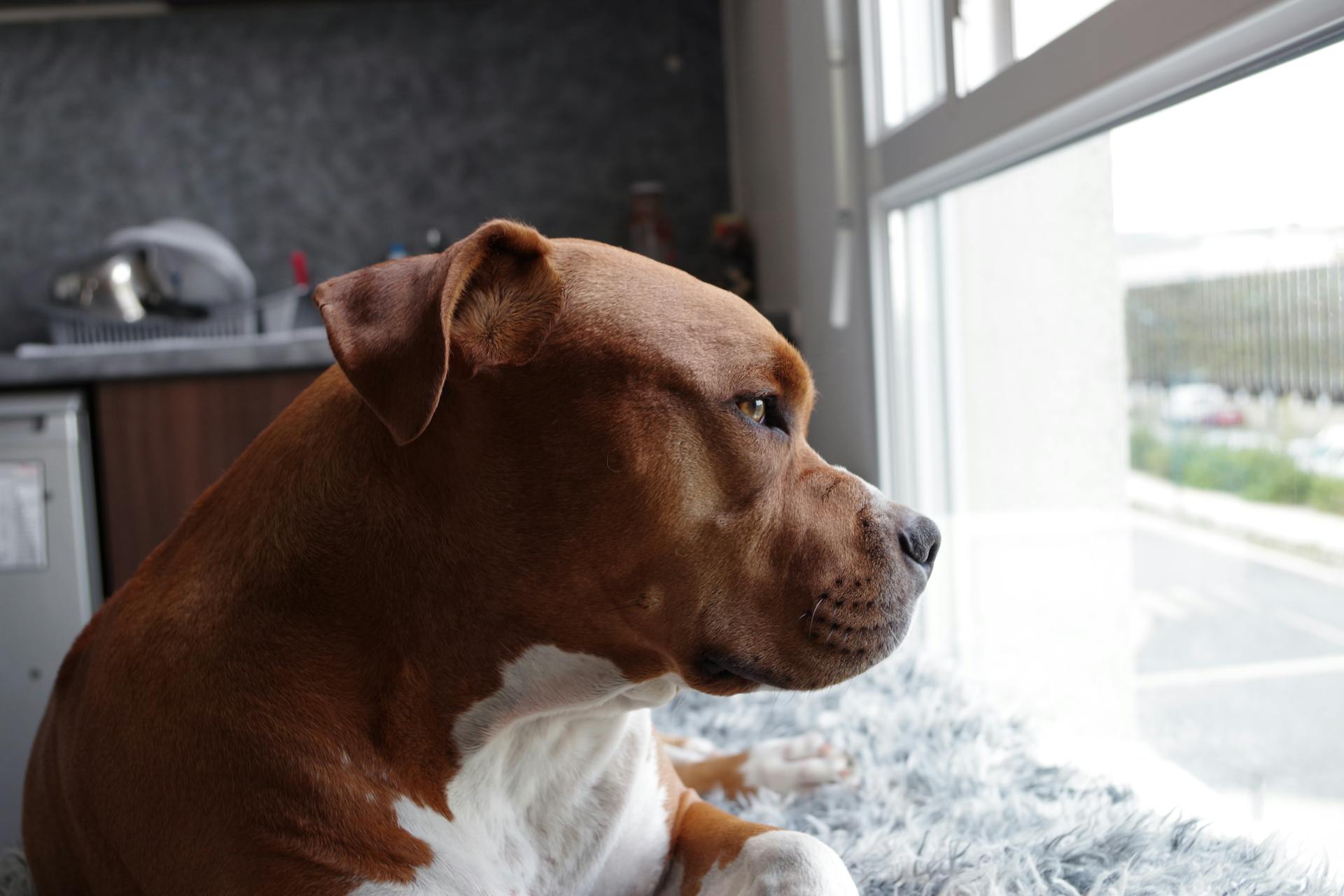
Genetics can also affect your pitbull's lifespan, but you can't control that. You can, however, monitor their physical and mental health closely to catch any potential issues early on.
By providing regular check-ups and preventative care, you can help your pitbull live a long and healthy life. With proper care and attention, many pitbulls have been known to live well into their teens.
Curious to learn more? Check out: How Long Do Dalmatian Dogs Live
Are Expensive?
Blue nose pitbulls can be quite pricey due to their rarity, with adoption costs ranging from $1,000 to $3,000.
Prices with reputable breeders will be even higher because breeding these dogs properly can be expensive.
If you're open to it, you might be able to find a blue nose pitbull at your local shelter.
Physical Characteristics
The blue nose American Bully Pitbull has a distinctive appearance. They have a short, smooth, and glossy coat that comes in almost any color, including white, brown, black, and chocolate.
Their physical characteristics are a result of their parent breeds. They typically stand between 18 to 25 inches tall and weigh between 30 to 100 pounds, depending on the size of their parents.
Here are some key physical characteristics of the blue nose American Bully Pitbull:
What Do They Look Like?
The Bullypit, Blue Nose Pitbull, and regular Pitbulls all have some similarities in their physical characteristics. The Bullypit has a short, smooth, and glossy coat that comes in a variety of colors.
The Blue Nose Pitbull has a distinctive bluish-gray coat, which can also be brindle or tiger striped. They often have white markings around the nose, eyes, and on their chest and feet.
Pitbulls are known for their broad and stocky build, thanks to their athletic genes. They have short snouts and a broad face.
Here's a comparison of the heights and weights of the Bullypit and Blue Nose Pitbull:
The Bullypit has a large head, short muzzle, and large mouth, giving them a comical expression at times.
Worth a look: Extra Large American Bully
Pitbull Size
Pitbulls come in a range of sizes, but their weight and height are influenced by their parents' genes.
On average, blue nose pitbulls hover between 30 to 60 lbs. in weight.
Females are generally smaller than males, but their exact size can vary depending on their lineage.
Blue nose pitbulls typically reach a height of approximately 18 to 21 inches.
Intriguing read: Tall American Bully
Frequently Asked Questions
How much is a blue nose pitbull worth?
A Blue Nose Pitbull typically costs between $1,000-$1,500, depending on its lineage and breed characteristics. Learn more about the factors that influence the price of this breed.
Are blue nose pitbulls less aggressive?
Blue Nose Pitbulls are not inherently aggressive, but their behavior depends on proper care and training. Understanding their specific needs is key to raising a happy and balanced Blue Nose Pitbull.
Featured Images: pexels.com
